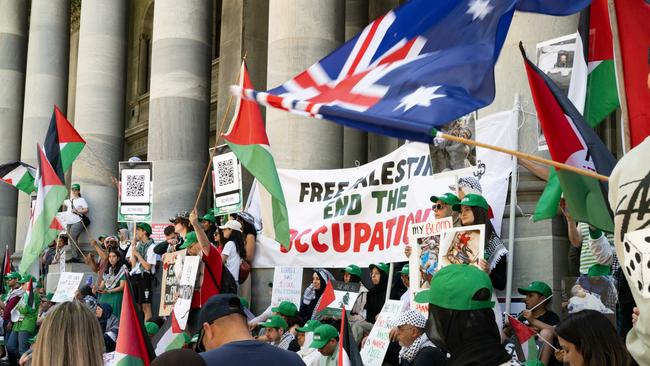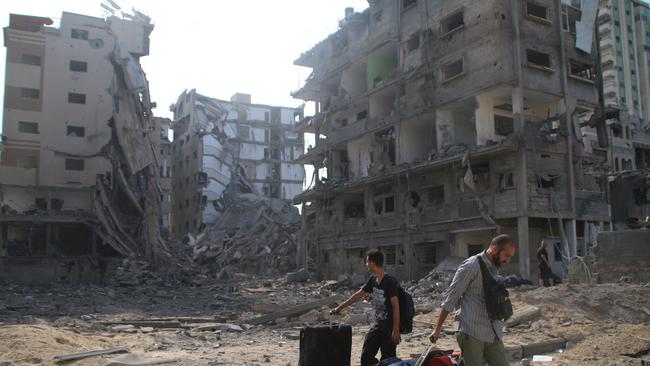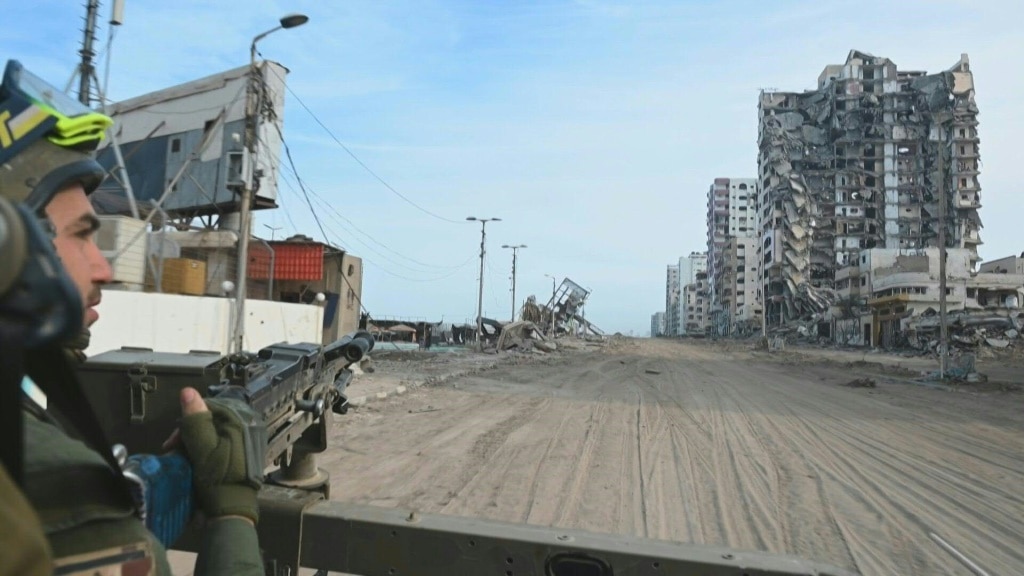Israelis and Palestinians must start to listen to each other

I tried to give the fairest answer I could, albeit not a complete one. Many people, I said, didn’t have a settled view or even have a view at all. Some of the polling was a bit crude but essentially it showed most people favoured a ceasefire but were evenly split on sympathy for Israel and the Palestinians. Young people tended towards the Palestinians and the older you got the more likely you were to support Israel.
At the end of my talk a young Muslim lady came up to me. Why, she said, was I saying young people supported Palestine? I explained that I was just factually relaying the polls, not giving an opinion of any kind. She stared at me, clearly hostile. I was, she said, saying that supporting Palestinians was something you only did if you were naive and uneducated.
This thought had not crossed my mind and I said that, on the contrary, young people tended to be more educated and that levels of education were probably positively correlated with answering “Palestinians”. Nothing I said impressed her in the slightest. She remained really cross.

It was a very depressing experience. I felt I couldn’t reach her at all. We couldn’t have a friendly exchange even on what a publicly available poll said. She either knew I supported Israel or just realised I was a Jew, and that was it.
I’ve felt this repeatedly during the recent conflict. We are all talking past each other. Nobody wishes to concede ground on anything. Nobody is prepared to accept even quite neutral facts when proffered by someone on the “other side”. And certainly not where the fact involves any kind of political retreat.
The use of the slogan “from the river to the sea” is an example. It’s perfectly plain that if Palestine exists from the river to the sea, Israel cannot. There is no other possible meaning for this slogan. So if it is used by people who want a two-state solution then it is not my fault for misunderstanding their view. They should try chanting something else.
Point this out and the chanters scorn you. They’ve started using this slogan and they aren’t going to back off because a Zionist asks them nicely. It would be a concession, and retreat is unthinkable. The more annoying they think it is to people like me, the more they are going to chant it.
How can you have a worthwhile exchange of views in such circumstances? And if even we, in this country, with so much less at stake, can’t have a worthwhile exchange, then how can there ever be peace?

Yet I realise that I can hardly think this, and argue it, if I am myself unwilling to listen to the arguments of others, if I am myself unwilling publicly to concede points and accept facts. So I thought I would at least try.
What follows doesn’t address every Palestinian nor make every available concession. And it isn’t the view of every strong supporter of Israel, nor of everyone who thinks, as I do, that Hamas is a death cult with whom peace is impossible and which now has to be defeated. But these are my views, and it is important to state them.
First, the argument of the early Zionists that Palestine was “a land without people, for a people without a land” wasn’t really true. The Jews were indeed a people without a land, they needed one, they had a historical connection with Palestine and there weren’t good alternatives. But this didn’t mean Palestine was a land without people. Palestinian Arabs lived there.
And their nationalist ambitions, as legitimate as any, had grown during the early part of the 20th century. It is understandable that they felt anger that these ambitions were thwarted, and shared the fear of migration that exists in almost every country.

It is regrettable in the extreme that this fear turned violent and that their leadership made common cause with the Nazis. But I can see entirely why, after the war, they didn’t want to divide the country as the United Nations determined. For Jews, the preceding century had been desperate and the UN plan was a lifeline, but only someone without an imagination can struggle to understand why the Palestinian Arabs rejected it.
In the war they launched against partition many Palestinian Arabs were driven from their homes. This happens in war (it also happened to a lot of Jews in Arab countries during the same conflict), and wouldn’t have happened if they hadn’t started one, but I see why they regard it as a disaster. It was exactly that for many people. The common Israeli narrative that everyone had just left voluntarily has been shown to be incorrect by modern Israeli historians.
But the creation of this refugee problem increases the importance of creating a Palestinian state. The observation of Zionists, including me, is that repeated offers of such a state by Israel have been rejected and that the Palestinians remain violently opposed to living peacefully next door to a bunch of Jews. This is certainly true, and of central importance, but not the whole truth.
For it is also true that, as the right has grown stronger in Israel, its interest in two states has declined. Politicians proposing two states look naive given the history of Palestinian rejection. And so Israelis have risen to power who believe in an Israel “from the river to the sea”.
This has led people like Binyamin Netanyahu to support an Israeli settlement policy which expands into land that could one day be part of a Palestinian state. This is politically extremely provocative, and some settlers accompany this with violent behaviour. While the settlements do not yet make peace impossible, they could. And part of their intention is to prevent a two-state solution.

The occupation by Israel of land that should one day form part of a Palestinian state may be a security necessity for as long as there is no peace, but it is nonetheless oppressive and inevitably involves severe restrictions of civil liberties. This makes the need for peace more urgent and the strategic and moral error of the settlement policy more obvious.
None of this undermines Israel’s central case. Israel is a small country in which almost half the Jews in the world live. Its existence and its security isn’t negotiable. How can people not see that? How can they just tell Israel to leave Hamas alone? How can they only tell Israel what it should stop doing but never what it should do?
It’s time for a dialogue in which we at least start acknowledging and listening to each other’s arguments.
The Times







Last week I addressed a large conference full of A-level students, talking almost entirely about domestic politics. But there was one question at the end about the Middle East. Was the government in tune with public opinion?